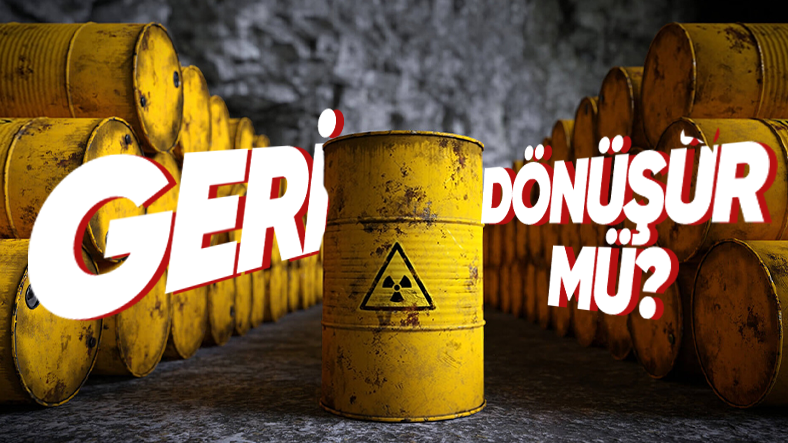Nuclear disasters, which we often see in action movies and are prevented by heroes at the last moment, are etched in our minds. But what is the fate of nuclear waste in real life?
In the world today almost Recycling of almost every substance It is done somehow, but when it comes to radioactive materials, it is not possible to say this.
Really why? Recycling these items Isn’t there any way?
First, we need to address the question of what nuclear waste is.
Nuclear waste, materials contaminated with radiation It is a broad term used to describe. They range from structural materials from Chernobyl to medical research waste.
The most common and controversial form is spent nuclear fuel, which is produced after nuclear fuel is used in energy production. When most people think of nuclear waste, they think: comes green liquid leaking from a cracked barrel.
In reality, nuclear fuel is filled with uranium pellets. sealed metal tubes It is found in the form. This fuel remains in a similar form after use and contains high levels of radiation.
In fact, it is possible to recycle these items, some countries even practice them!
Countries like France and Japan It recycles its nuclear waste regularly. These countries minimize the amount of toxic waste by making the best use of their resources.
Approximately 11% of the world’s energy comes from nuclear power plants. Uranium for nuclear fission It is the most commonly used element. Natural uranium contains a mixture of different isotopes, of which U-235 is the only natural isotope used in energy production.
Nuclear waste recycling, high costs and due to technical difficulties It has not become widespread. The United States banned the recycling of spent nuclear fuel with a decision taken in 1977.
One of the reasons behind this is that terrorists steal or destroy recycled nuclear waste. It is the fear of producing one’s own waste.
On the other hand, countries such as France, Japan, Germany and Russia regularly recycle their nuclear waste, reducing the need for long-term storage.
Although the installation and operation of recycling facilities is costly, As long-term storage costs increase Nuclear waste recycling will be an inevitable solution.
Nuclear energy is theoretically the most sustainable and It is one of the low waste options. All that is required to recycle nuclear waste is the willingness of nuclear countries to fully invest in recycling infrastructure.
In this way, potential threats for hundreds of thousands of years need for high-level waste storage will decrease.
Our other content that may interest you:
RELATED NEWS
How Did Turkey Manage to Be on the List of “The World’s Most Important Radioactive Accidents”, Even Though It Doesn’t Have a Nuclear Power Plant?
RELATED NEWS
Radioactive Substance Has Begun to Be Injected Live into the Horns of Rhinos! Here’s Why You’ll Deserve It Too Much
RELATED NEWS
Why Plant Sunflowers After Nuclear Disasters? (You’ll be Surprised When You Learn the Reason!)
RELATED NEWS
Why Doesn’t Germany Have Nuclear Energy Unlike Many Developed Countries?
Source link: https://www.webtekno.com/radyoaktif-atiklar-neden-yeniden-kullanilamiyor-h147855.html


